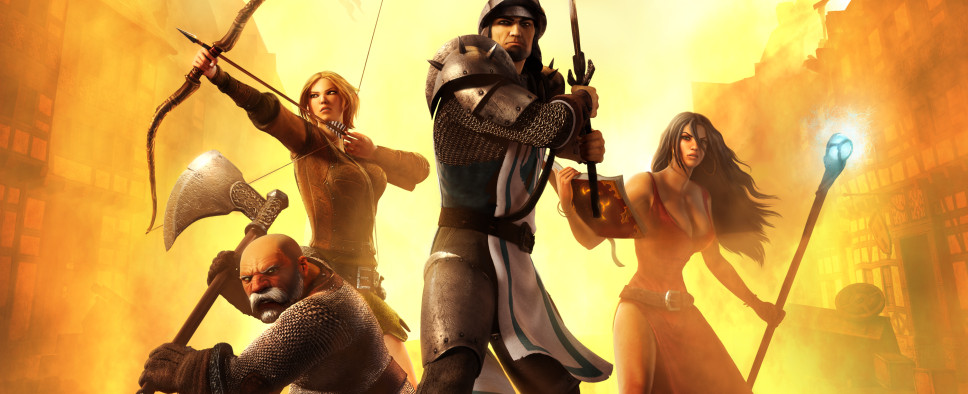Drakensang: The Dark Eye Retrospective
-
Category: News ArchiveHits: 3992

RPGWatch's Fluent has penned a retrospective review of Drakensang: The Dark Eye, which offers some rather positive thoughts and kind words on the title. Here's an excerpt:
The Dark Eye system really makes Drakensang sing. The game does a great job of adapting the pen-and-paper rules to suit this video game world, and that is probably single-handedly my favorite aspect of the game. The rules are wonderful, especially if you are familiar with Dungeons & Dragons, as they have a lot of familiar, juicy stats that affect your character, as well as a few curveballs in the mix with stats such as "Cleverness" and "Courage". There are plenty of Talents, Combat Abilities, Magic Talents and more to pore over and enjoy, and the game allows free customization of nearly every statistic in the game, if you have enough Experience Points to cover the cost of increasing it. There is also a deep inventory system, with plenty of 'mundane' items that may come in handy later on in your adventure, crafting materials, consumables and everything else you'd come to expect from a game that shares many similarities with the way Dungeons & Dragons works.
The Talent system is really quite beautiful and deserves some praise. There are various Talents for different categories, such as Social talents, like Seduce, Fast Talk and Haggle , or Artisan talents, such as Blacksmithing and Alchemy. The absolute best feature of this system is that not only are these Talents useful for the minute-to-minute gameplay, such as crafting or influencing the dice rolls to determine the outcome of the specific Talent, but they also feature prominently in the game's skill check system, which features nearly every skill being useful in some interactions with various NPCs in the game. For example, if you have a high enough Seduce skill, you can seduce a person into giving you extra information for a quest, or new information that otherwise wouldn't be available to you. Train your Animal Lore talent and perhaps you will stumble upon a quest that offers a chance to interact with an animal in a way that only those skilled in the Talent would be able to do. It seems that nearly every interaction with an NPC in the game orbits around this skill checks system, and it greatly enhances the role-playing possibilities, the character customization as well as the overall interaction with the NPCs and how you solve quests.
Combat is an intense proposition that also makes heavy use of dice rolls. In fact, dice rolls are used for every action in the game, doing a great job of sticking to the pen-and-paper feel of the rules and catering to us die-hard RPG fans. The combat is Real-Time-With-Pause, which means you can pause the game at any time to issue commands to your companions, of whom you'll be traveling with in parties of up to 4 characters, with other characters left behind at your base. Special Combat Talents, Magic Talents and normal attacks can be used in battle, and since the game is quite challenging at times, especially in boss fights or rare monster encounters, managing the Talents in a proper way could mean the difference between a character living or being incapacitated, as well as swing the outcome of a tough battle.

